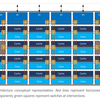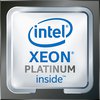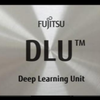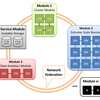A report published by James Kisner, an equity analyst at global investment banking firm Jeffries, shot a few holes in IBMs Watson and the companys cognitive computing strategy. Along the way, Kisner offered some interesting insights into the AI market and some of the major players competing in the space.
WekaIO, a startup offering a cloud-based storage platform that can support exabytes of data in single namespace, emerged from stealth earlier this week. The company is touting the new product as the worlds fastest distributed file system.
One of the more significant architectural advancements in Intels new Xeon scalable processor, aka Skylake, is the use of a mesh interconnect thatlink cores and other on-chip componentry.
After already shipping more than half a million of its next-generation Xeon products to customers, Intel officially launched its new Xeon scalable processor product line. The chipmaker is calling it the biggest data center advancement in a decade.
Japanese computer-maker Fujitsu is developing an AI-specific microprocessor called the Deep Learning Unit (DLU). The companys goal is to produce a chip that delivers 10 times better performance per watt than the competition.
Mellanox has entered new territory with its recently announced Spectrum-2 line of Ethernet switches, which supports speeds of 200 gigabits per second and beyond.
Episode 184: Addison Snell and Michael Feldman discuss the Spectrum-2 announcement from Mellanox and Atos' quantum simulator.
Chinese web giant Baidu announced it will use some of the latest NVIDIA hardware and software to augment a number of its AI-based services.
With universal quantum computers on the horizon, Atos has developed a simulation platform for programming the qubit-based machines.
The Jlich Supercomputing Center (JSC) has kicked off DEEP-EST, an EU-funded project that aims to build a supercomputer capable of handling both high performance computing and high performance data analytics workloads.









